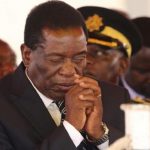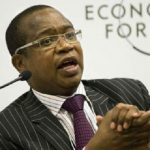 The toxic presidency of Robert Mugabe may be over, but the new Zimbabwean government of Emmerson Mnangagwa must quickly make some hard foreign policy decisions if it is to change the country’s fortunes. For so far no major foreign power has undertaken to relieve in any significant way the country’s economic distress.
The toxic presidency of Robert Mugabe may be over, but the new Zimbabwean government of Emmerson Mnangagwa must quickly make some hard foreign policy decisions if it is to change the country’s fortunes. For so far no major foreign power has undertaken to relieve in any significant way the country’s economic distress.
Although election observer reports have been guardedly and conditionally – almost grudgingly – accepting of the election results, the question marks raised and, particularly, the totally unnecessary violence unleashed against protesters in the wake of the election have made all governments shy of offering full endorsement of the regime.
What this has meant is that foreign investor confidence, while not discouraged entirely, is very slow to assume the kind of mass and speed of movement the economy needs.
The IMF has spoken of some negotiated relief, but only under a “reform package”. The Chinese also feel that they do not want to put good money after bad. Previous loans have not been repaid and, although rumours of seizing Zimbabwean institutional assets as collateral have been swiftly denied, it is no secret that the Chinese are not best pleased with Zimbabwe’s approach to fiscal responsibility.
The Zimbabweans seem not to have noticed that, increasingly, Chinese liquidity is made available through Chinese banks. They may or may not be state-owned – but it is not the state that makes a benefaction; it is a bank that makes a loan. And banks stay in business by realising the returns from a loan.
As it is, liquidity has been either misused, misappropriated, or used simply to balance books that otherwise would be parlously unbalanced.
Although the Americans have lowered the tone of their criticisms of the government, the softly-softly approach cannot hide the strict conditionality they seek. This resides in guarantees of future electoral conduct, but also essentially the desecuritisation of the ZANU-PF machine.
In a word, the problem is Constantino Chiwenga, the former defence forces chief, now vice-president, who has a strong influence within the military – but, no matter what the Americans want, he is going nowhere fast, and he will not sacrifice his deep influence within the military.
The Europeans have lifted the huge majority of their sanctions, but the outgoing European representative has been critical of both the election and the violence that followed. This leaves the British as a key player.
Continued next page
(419 VIEWS)


